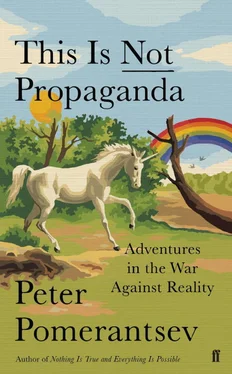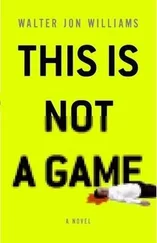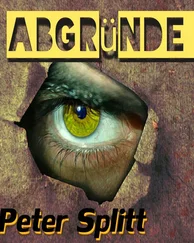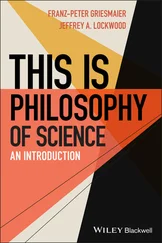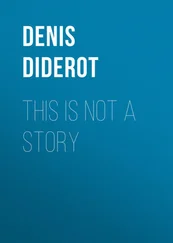Early in the story the author is trying to work out where his sense of self begins, referencing Faulkner’s writing, which constantly explores where awareness emerges. Does identity, Igor asks, begin with politics?
I am in a room of music and smoke. My father’s taut back. The awfulness of newspaper editorials; what ponderous words father has to juggle. Machine and Tractor Stations, Party Directive… Did Faulkner begin with this? No.
Are religion and creed, then, where identity begins?
Midday, helmets of cupolas, steep steps, we’re in T-shirts, six years old, in the cool close air of the church. From above a voice and a pock-marked face grunts: ‘Out, Jewish runt.’ Did Faulkner begin like this? No.
And so Igor reaches for somewhere beyond these, to a place where, if I understand him correctly, identity only appears when it recognises the presence of someone else.
A girl, on the shore of you. How high the sky. How deep the kiss. We do not say ‘you’ to each other but ‘I’. I swim far out into you: past – buoys, past – horizons; glancing back could not see the rim of the shore and was glad. Remember how ten Julys ago you went into the breath-taking Black Sea and were a warm current in it? But does Faulkner have anything to do with this? He does. He does!
Lines that I find impossible to read without thinking that he would be arrested by the KGB when emerging from a real swim in the same sea soon after.
Chernivtsi/Czernowitz
During his decades away from Chernivtsi Igor had learnt to see his home town afresh.
Growing up he had been dimly aware that it had formerly been a distant province of Austro-Hungary, but he had no idea about the literary riches it had once yielded. It was only during conversations in Kiev, Austria, Israel that he learnt that before the Holocaust, the war and the arrival of the Soviet army, it had been home to renowned German and Austrian poets and writers (Paul Celan, Rose Ausländer, Gregor von Rezzori), legendary rabbis and Israeli novelists (Aharon Appelfeld), Romanian classics and all manner of great, late Austro-Hungarian tenors, economists and biochemists, who had all emerged in one great burst of early-twentieth-century energy and tragedy from this tiny town. Their memory had been suppressed in the Soviet Union, and it was only when he arrived in the West that Igor would meet people who would suddenly become animated when he mentioned where he had been raised: ‘You are from Chernivtsi? A city of geniuses!’
And before the Austro-Hungarian era the town had another life as a distant outpost of the Ottoman Empire. This little place had so many histories, each with little knowledge of the others: Turk and Viennese, Romanian, Soviet, Ukrainian. It had different names too: Chernivtsi, Czernowitz, Черновцы, Cernăuți, Czerniowce, Csernovic, Chern. Away from the town, Igor was even inspired by its prison, which was built at the start of the nineteenth century. The square it stands in was called Criminal Square, then Soviet Square, now Cathedral Square. How many layers of curses, verses, promises were scratched onto the walls of its cells in how many languages, raging at how many different overlords?
For decades Igor had tried to construct a world in the airwaves and in books that would interlace different cultures and could thus be home, when all the time he had the material of Chernivtsi to work with, a whole lost history to surface, like the computer scientists who raise unknown interconnections from the dark pools of data.
‘Growing up,’ Igor wrote, ‘we were little barbarians. We couldn’t feel solid ground under our feet. We had no idea what priceless ruins we walked over. Barbarism is the absence of memory.’
In 2009 Igor started going back to Chernivtsi. He began to organise a poetry festival in the town. Poets came from across the world, drawn to see the forgotten home of their literary heroes, and the faded lecture halls, libraries and cafes, which had long forgotten their own polyphonic ancestry, were suddenly full of readings in German and Yiddish, Hebrew, Romanian, Ukrainian, Russian, Polish, as well English, Flemish, French, Spanish…
Igor’s aim was to awaken the memory of the town, not because the past can be recoverable, but because it can give an impetus for how Chernivtsi and Ukraine can understand themselves tomorrow, beyond the dead ends of information war.
Igor and Lina currently live in Prague, the city that Soviet tanks entered in 1968 in an invasion that did so much to turn Igor against the Soviet regime. This is where Radio Free Europe is now based, invited in 1995 by then president Václav Havel as a sign of thanks for the support of the Western ‘voices’ in the Cold War. Havel is now dead, those who still trumpet his ideals of ‘living in truth’ often scorned as naive ‘Haveloids’. RFE lives in a strange limbo, still dedicated to a set of ideals which the US may not continue to even pretend to support in the future. Indeed, calling it ‘Radio’ is already a misnomer, as it tries to straddle television, podcasts, texts. ‘Europe’ is barely the right word either: most of the language sections are now from Central Asia and the Middle East. The majority of the Central and Eastern European services were disbanded after those countries began to enter the EU. Since then Hungary and Poland have slipped back into flirtations with authoritarianism, led by nationalist politicians who were once anti-Soviet dissidents, but for whom ‘national rights’ turned out to be not the same as ‘human rights’; being ‘anti-Communist’ turned out to be not much of a political identity in and of itself.
Tomorrow morning Igor will head to work. He is the last Cold War veteran at the ‘Radio’. When students are brought round on tours, he is pointed out like some sort of museum piece. He still dreams of a radio of the future that can ‘fuse the soul of mankind’, that can find the echoes and interconnections between stories in Manila and St Petersburg, Mexico and Tallinn. In one of his later books Igor came up with a tragicomic alter ego who works at an international radio station and has become obsessed with the idea that he can resurrect people through the power of radio – a story that captures the strange mix of megalomania and actual power bestowed on those who work in the media. The idea had first come to Igor when he recalled how, when Cold War political prisoners managed to get information about their cases broadcast by Western media, it felt as if they had secured a few minutes’ liberty, or at least been given the possibility of exercising in the open air – a second life on the airwaves, when the secret police had squeezed their first. Now his alter ego stretched that feeling further:
I have released thousands of voices into the cosmos.
According to the laws of physics,
these voices will live forever.
Who would have thought it: some drudge
goes to the office every day,
records somebody and then…
yes, then grants them immortality!
It is half-term and I am visiting my mother and father with my nine-year-old twin boys. They want to know if the world now was the same in Lina’s youth. She tries to explain Kiev in the 1970s. Much sounds wild to them (‘Igor was arrested for reading books? How? Why?’ they ask). Other things can sound familiar.
‘I had the sense that all the big, official words around us didn’t mean anything any more,’ says Lina. ‘They were like old linen blowing in the wind, empty.’
And then she quotes a line from a poem: ‘Dead words smell foul.’
I am surrounded by dead words. Or, to be more precise, the association of words and images, stories and meanings that I inherited have lost their power. The sight of a statue of a dictator being pulled down is still important to those people who lived under him, but I don’t instantly connect to a story of ever greater freedom any more. Millions of people out in the streets of a city à la 1989 don’t immediately signify a happy future. Perhaps it’s not a coincidence that social media’s favourite genre is memes: pictures that can be defaced by people with new phrases that change the meaning of the image, symptoms of a time when sense is ceaselessly unstable. So that one might take a picture of a pipe and write beneath it: ‘This is not a pipe.’
Читать дальше
